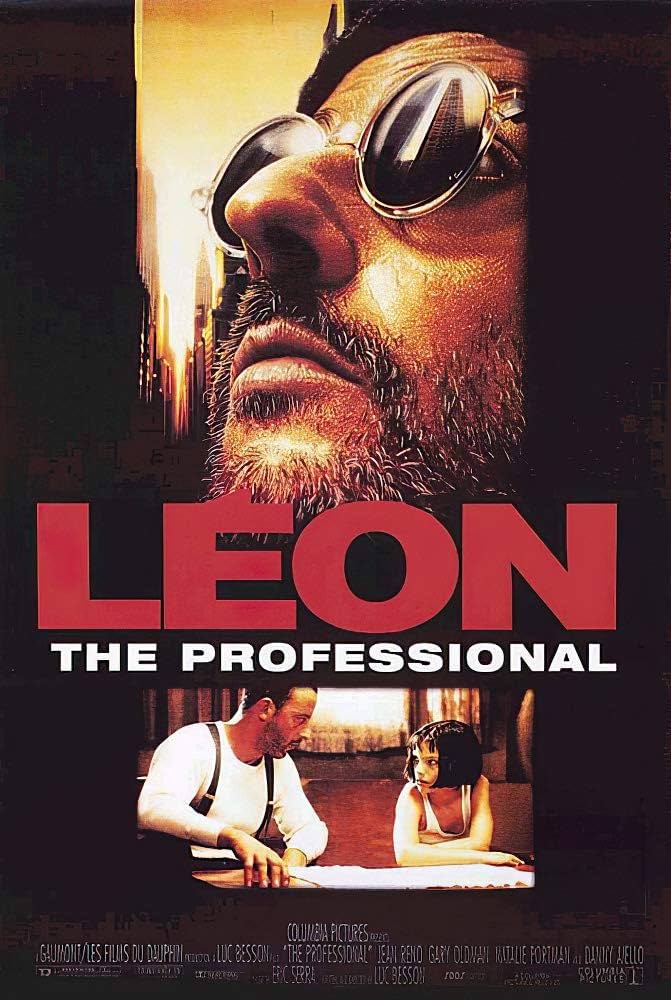Synopsis
In the 1994 film “Leon: The Professional,” directed by Luc Besson, Jean Reno takes on the role of the titular character, Léon, a skilled and solitary hitman. The story takes an unexpected turn when he forms an unlikely bond with Mathilda, portrayed by a young Natalie Portman in her breakthrough role. Mathilda seeks refuge with Léon after her family falls victim to a corrupt DEA agent, played by Gary Oldman. The film beautifully unfolds as Léon becomes both a mentor and protector to Mathilda, teaching her the art of his lethal profession. Reno and Portman deliver unforgettable performances, adding depth and emotional resonance to this gripping tale of an unconventional partnership forged in the shadows of crime and revenge.
The Unassuming Hitman
Jean Reno brilliantly embodies the character of Léon, an unassuming hitman with unparalleled expertise. Reno’s portrayal is nothing short of remarkable, capturing the character’s subtleties with finesse and authenticity. Léon’s unassuming demeanour is a masterclass in understated acting, where every glance, gesture, and silence speaks volumes. Reno manages to convey a quiet intensity, making Léon simultaneously enigmatic and relatable. It’s the little nuances—the meticulous way he cares for his plant, the precision in his methods, or the vulnerability in his eyes—that elevate Reno’s performance to a cinematic triumph. In my opinion, the unassuming hitman is one of the best character traits in storytelling, and Reno’s portrayal in “Leon: The Professional” stands as a testament to the enduring power of such nuanced characters in movies, TV, and literature.

Future Oscar Winner
Natlie Portman’s film Debut is nothing short of spectacular. In her role as Mathilda, Portman masterfully navigates the complexity of a young, scared, and naive girl thrust into a world of crime and violence. What makes her performance truly extraordinary is the seamless transition between portraying vulnerability and showcasing a surprising strength and independence. Portman captures Mathilda’s multifaceted nature with an impressive depth, making her character both relatable and awe-inspiring. For a young actor, the subtleties she brings to the screen are next level, from the wide-eyed innocence to the moments of cunning manipulation. Her ability to convey a spectrum of emotions, often within a single scene, speaks volumes about her talent and foreshadows the incredible career that would follow. Natalie Portman’s debut in “Leon: The Professional” is a testament to her exceptional acting prowess and remains a standout moment in cinematic history.

A Fine Line
The film effortlessly navigates a delicate balance between the peculiar and the heartwarming. At its core, the narrative explores the evolving relationship between a 12-year-old girl named Mathilda and a significantly older hitman, Léon. The peculiar aspect arises as Mathilda, portrayed by Natalie Portman, begins to develop an unconventional and somewhat ambiguous bond with Léon, played by Jean Reno. However, this seemingly odd dynamic transforms into something endearing, heartfelt, and even beautiful as the young girl becomes an unexpected force of positive change in the hitman’s life. Scenes depicting Mathilda teaching Léon to read or their shared moments of vulnerability add a layer of depth that transcends the initial oddity.
What makes “Léon” even more captivating is its stylized approach, allowing the film to gracefully navigate improbable scenarios without losing its charm. For instance, the film masterfully executes action sequences that, while bordering on the fantastical, blend seamlessly with the overall stylized aesthetic, such as Léon’s nimble escape from a chaotic shootout. Despite the potential for the narrative to veer into uncomfortable territory, the film never crosses that line into weirdness. Instead, it remains a poignant exploration of unlikely connections and personal transformation, ultimately displaying a captivating and emotionally resonant story.

Gritty Realism + Stylised Aesthetic
Luc Besson’s directing mastery is evident in every frame, creating a visually stunning and emotionally charged cinematic experience. Besson employs a distinct style that blends gritty realism with stylized aesthetics, bringing the gritty world of hitmen to life. The film is punctuated by dynamic and well-choreographed action sequences, showcasing Besson’s skill in orchestrating intense and visually captivating moments. His ability to capture nuanced performances from the cast, especially Jean Reno and Natalie Portman, adds depth to the characters and elevates the overall narrative. Besson’s direction in “Leon: The Professional” stands as a testament to his command of storytelling, seamlessly balancing action, emotion, and character development to deliver a memorable and impactful film.

Unnecessary At Times
While the score and soundtrack contribute significantly to the film’s atmosphere, there are instances where their use feels excessive and, at times, unnecessary. The musical compositions effectively enhance the emotional intensity of key scenes, but there are moments when the background music seems to linger unnecessarily, potentially overshadowing the rawness of certain moments. The overuse of the score, while undoubtedly impactful in some sequences, may distract from the subtleties of the characters’ emotions. In certain quieter scenes, the presence of music may feel intrusive, detracting from the power of the actors’ performances. While the score undoubtedly has its moments of brilliance, a more restrained approach to its use might have allowed for a more nuanced and balanced viewing experience.
Different TImes
I would be remiss if I didn’t say that viewing “Leon: The Professional” three decades after its release, I find certain moments to be problematic and cringe-inducing, particularly in the aesthetic portrayal of the character Mathilda. Whether a result of how the character was written or the choices made by the wardrobe, hair, and makeup departments, Mathilda’s presentation can be discomforting. It’s essential to acknowledge the cultural context of the time, understanding that societal norms and sensitivities have evolved. However, even considering the different era, I can’t help but feel that the film’s aesthetic choices for Mathilda might be less tolerated in today’s cinematic landscape, reflecting a contemporary awareness and scrutiny around the depiction of minors in media.

Should You Watch?
Leon: The Professional is undoubtedly a must-watch film, offering a gripping narrative, stellar performances by Jean Reno and Natalie Portman, and masterful direction by Luc Besson. The film’s exploration of an unconventional relationship and the transformation of its characters adds depth to the storyline. However, despite its undeniable merits, I find the film’s placement in the top 100 rated movies on IMDb to be somewhat overstated. While it excels in several aspects, the heightened ranking might be influenced by factors beyond the film’s intrinsic qualities, such as nostalgia or cultural impact. Personally, I wouldn’t place it in the top 50, but its status as a must-watch classic remains undeniably intact.



